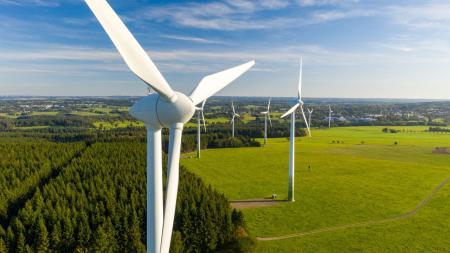The Green Revolution, an ongoing global effort to tackle pressing environmental issues. We well delve into the significance of the Green Revolution, its historical context, key initiatives, and how individuals can actively participate in creating a sustainable future. By the end of this read, you'll have a deeper understanding of the importance of addressing environmental challenges and the role each one of us can play in this transformative movement.
Understanding the Green Revolution
The Green Revolution refers to the concerted global endeavor to combat environmental issues and promote sustainability across various sectors. Its primary goal is to find innovative solutions to mitigate climate change, protect biodiversity, conserve natural resources, and reduce pollution. This movement recognizes that humanity must coexist harmoniously with the planet to ensure a prosperous future for generations to come.
Historical Context
The origins of the Green Revolution can be traced back to the late 20th century when environmental concerns gained international attention. In response to alarming trends such as deforestation, air pollution, and habitat destruction, governments, organizations, and communities started collaborating to address these challenges collectively.
Key Initiatives in the Green Revolution
Renewable Energy Adoption
One of the fundamental steps in tackling environmental issues is transitioning from fossil fuels to renewable energy sources like solar, wind, and hydroelectric power. Countries around the world are increasingly investing in renewable energy infrastructure to reduce greenhouse gas emissions.
Afforestation and Reforestation
Planting trees plays a crucial role in mitigating climate change, as trees absorb carbon dioxide and release oxygen. Afforestation (establishing new forests) and reforestation (restoring depleted forests) help combat deforestation and its detrimental impacts.
Sustainable Agriculture
Implementing sustainable agricultural practices, such as organic farming, crop rotation, and agroforestry, promotes soil health, conserves water, and reduces the use of harmful chemicals, benefiting both the environment and human health.
Waste Management
Effective waste management systems, including recycling and waste-to-energy technologies, are critical in reducing the amount of waste sent to landfills and minimizing environmental pollution.
Conservation of Biodiversity
Protecting biodiversity is essential for maintaining ecosystem balance. Establishing protected areas, promoting wildlife corridors, and supporting conservation efforts help safeguard endangered species and their habitats.
Sustainable Transportation
Encouraging the use of public transportation, cycling, and electric vehicles reduces carbon emissions and improves air quality in urban areas.
Water Conservation
Implementing water-saving technologies and promoting responsible water usage helps combat water scarcity, a growing concern in many regions around the world.
Green Building and Infrastructure
Constructing eco-friendly buildings and infrastructure with energy-efficient materials and designs reduces the overall environmental footprint of urban development.
Education and Advocacy
Raising awareness about environmental issues and advocating for policy changes at local, national, and international levels are essential components of the Green Revolution.
International Collaboration
Environmental challenges are global in nature, requiring international cooperation to address effectively. Forums and treaties like the United Nations Framework Convention on Climate Change (UNFCCC) foster dialogue and action among nations.
The Green Revolution represents a pivotal moment in human history, where societies worldwide unite to combat environmental issues and create a sustainable future. By adopting renewable energy, practicing sustainable agriculture, conserving biodiversity, and embracing responsible consumption and waste management, we can all be active participants in this transformative movement. Together, we have the power to make a positive impact on our planet and ensure a healthier, greener, and more prosperous future for generations to come.
The Green Revolution is not just a buzzword; it's a call to action, a reminder that every small effort we make in our daily lives contributes to the larger cause of safeguarding our planet. So let's embark on this journey together, hand in hand, as stewards of the Earth, and create a brighter, greener, and more sustainable future for ourselves and future generations.
















